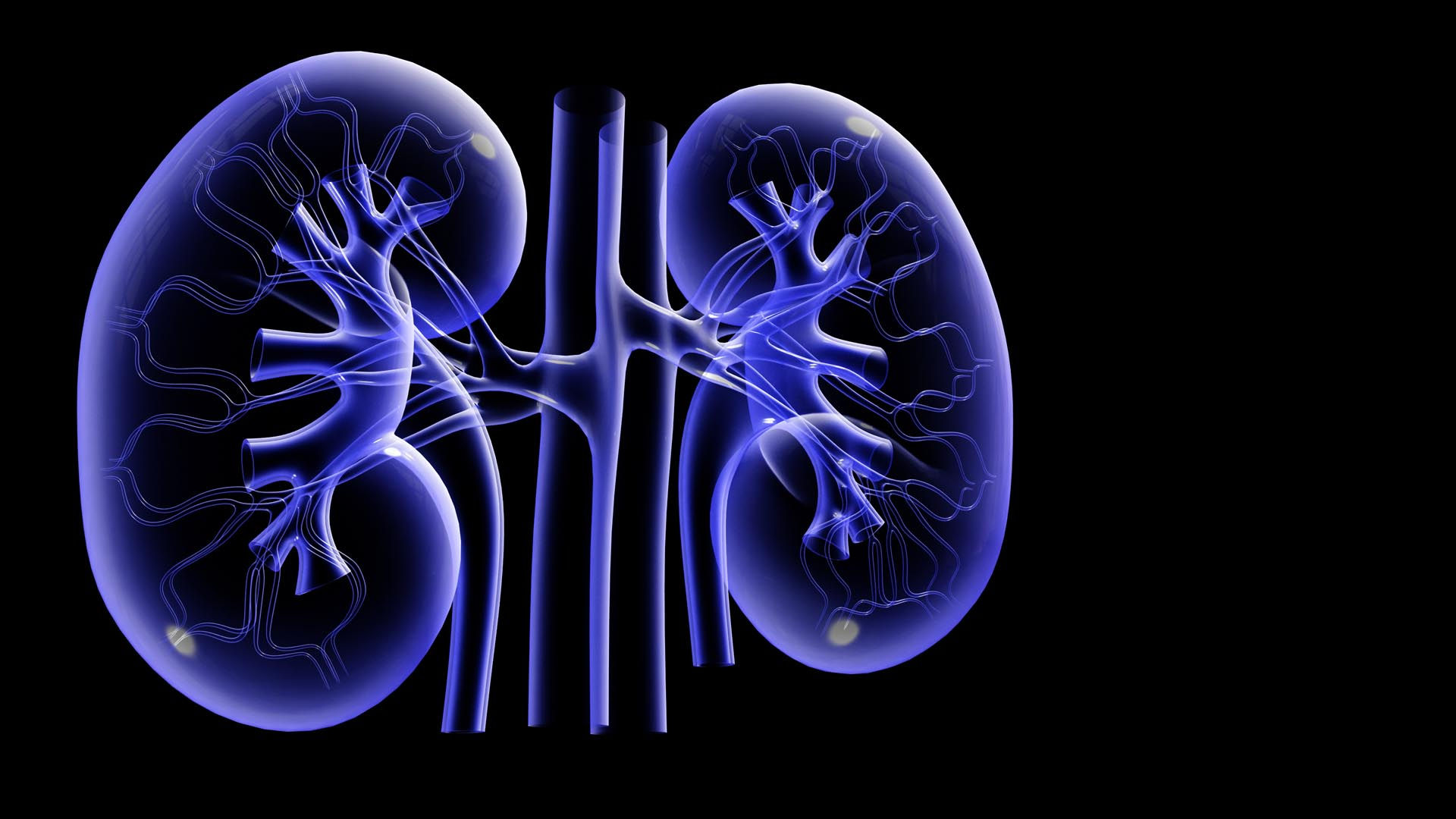
Nephrology is the scientific study of the anatomy, physiology, and disorders of the kidneys.
Funtions of kidneys:
Regulation of ion levels in the blood.
Regulation of blood volume and blood pressure.
Regulation of blood pH.
Production of hormones.
Excretion of wastes.
The functional units of the kidney are called the nephrons.
Physiology of the Kidney







Renal Function
The Glomerular Filtration Rate ( GFR = Kf [PGC - PBS - πGC] ) is regulated by the 4 parameters shown, as noted in [Feher, pages 665-666).
-
PBS : The pressure in Bowman’s space is approximately 20 mm Hg and does not vary much because it is a function of structure and compliance.
-
πGC : If water is lost due to dehydration, the blood becomes more concentrated and oncotic pressure increases. This decreases GFR, and reduces further loss of fluid through the urine. This can only be restored by drinking water.
-
PGC : GFR can be adjusted up or down by constriction/dilation of either the afferent or efferent arteriole.
-
Kf : The filtration coefficient is regulated at the glomerulus.
Cardiac Output (CO) is approximately 5000 ml/minute, and about 20% of that goes to the kidneys = 1000 ml/minute.
-
Renal Plasma Flow (RPF) is approximately half, or 500 ml/minute, depending on the percentage of plasma in the blood.
-
Glomerular Filtration Rate (GFR ) = Renal Plasma Flow * Filtration Fraction is approximately 125 ml/minute.